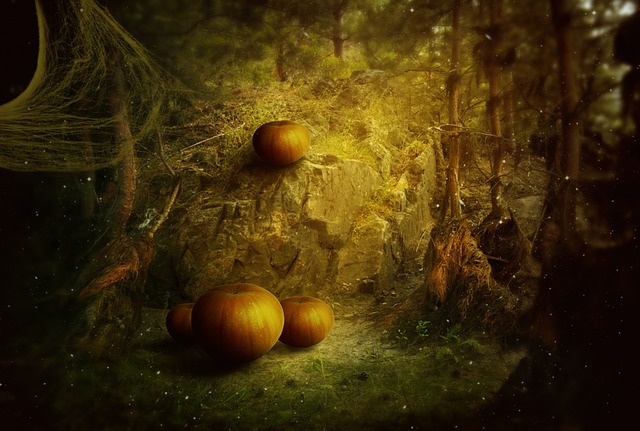Happy Halloween with Greek folklore! Posted by Ourania on Oct 30, 2019 in Culture
Γεια σας! Happy Halloween! Halloween may not bet a Greek holiday but the last years it becomes more and more popular. Today I will share some superstitious beliefs that appeared many years ago. You can also read more about superstitions in one of the first posts of the blog.
Η φωτιά (fire): In the old years, people did not have matches, so they used to keep the coils burning, in order to have fire to cook. Sometimes the fire was put out so they took fire from their neighbors. However, they were not allowed to take out fire from the same house for more than 40 times because the house would be in danger. It would be “extinguished”, as they said, like fire.
Το κόσκινο (sieve) is never taken out of the house at night. In the Peloponnese it is called κρισάρα and people believed that την κρισάρα δεν πρέπει να τη δουν τα άστρα (the sieve must not be seen by the stars).
Το αλάτι (salt):A woman cannot conceive a child if her mother-in-low (πεθερά) visits her and leaves the house with her pockets full of salt. There are many superstitions about salt and people believed that when it was sprinkled under an unwanted guest’s chair, the guest would leave.
Ο παπάς (Orthodox priest): When boys or men see a priest on the street, they touch their genitals (γεννητικά όργανα).
Το μεσημέρι (midday): There are countless superstitions related to μεσημέρι. In ancient Greece, it was a sacred hour and mortals were punished when they did not respect it. Later, people believed that if a rooster (κόκορας) crowed at midday, someone would die or that they would hear bad news.
Το φίδι του σπιτιού (the snake of the house): Finding a snake in one’s house is a sign of good luck. The snake, or sometimes lizard (σαύρα), is a good spirit (καλό στοιχειό) protecting the house and it must never be killed.
Οι νεράιδες (fairies): The fairies live in the woods and do not like being distracted by humans. Παίρνουν τη φωνή των ανθρώπων (they “catch” people’s voice, they make them unable to speak) if people greet them. Sometimes, they grab secretly human infants from the cradle and exchange them with one of their own babies who is ill and delicate. Therefore, if there was a sick child in a family, usually suffering by a psychiatric disorder, people believed that the child was νεαραϊδόπεδο, a fairy’s child. The stories about fairies never end.
Οι στάχτες (ashes): Τhe ashes collected during το Δωδεακήμερο (Twelve Days of Christmas) are dropped at the fields. They are dirtied by the goblins (καλλικάντζαροι) and cannot be used to clean the house or the clothes. It was also believed that they had the power to break a family up, so they were used by people who practiced witchcraft.

Build vocabulary, practice pronunciation, and more with Transparent Language Online. Available anytime, anywhere, on any device.






Comments:
Helen:
I loved this post! Very entertaining and I learned so many words. Great job. Thanks!
Ourania:
@Helen Thank you 🙂 I’m glad you find this post interesting.